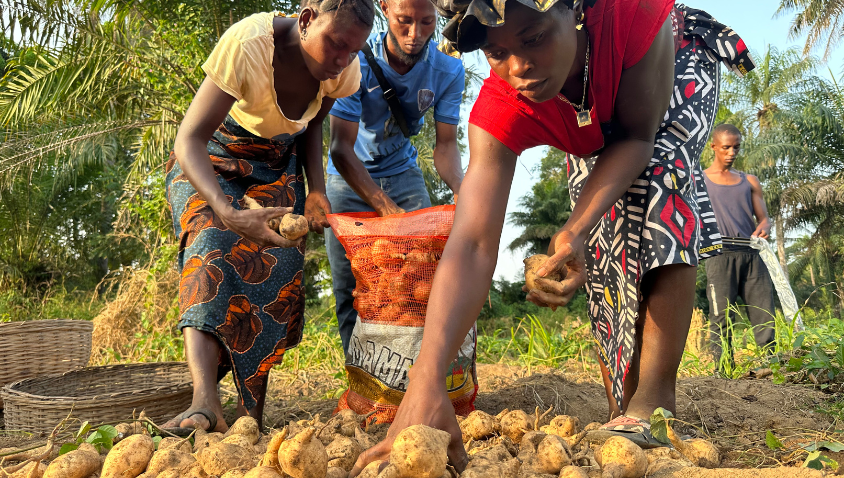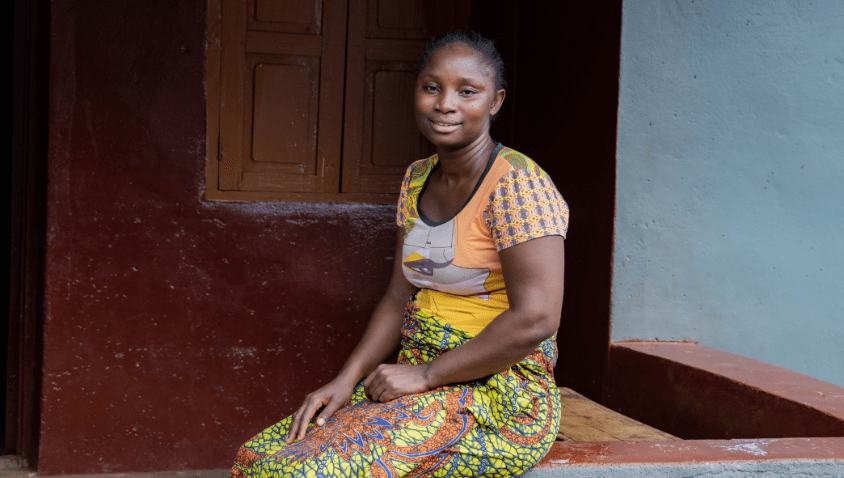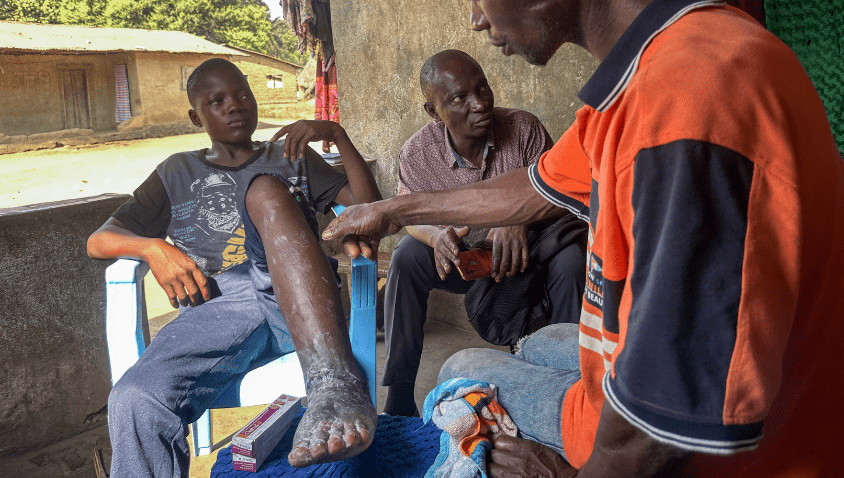Sierra Leone
Sierra Leone remains one of the poorest countries in Africa and has one of the highest rates of inflation globally. Yet its people are resilient — overcoming civil war, climate crises, poverty, and disease. For more than 20 years, Helen Keller Intl has worked closely with the government and communities to help families access equitable healthcare and nutrition. Our community-driven, science-based programs support children, pregnant and nursing women, and families to access medications and supplements to ward off disease, grow and eat highly-nutritious diets, and receive vitamin A to improve wellness.

Sierra Leone is the 3rd most vulnerable country to the effects of climate-induced and man-made disasters — making it harder for farmers to grow enough food to offset rising hunger.

Maternal deaths account for 36% of deaths among women aged 15-49, mainly due to malnutrition, depleted immune systems, and cost of care.

Lymphatic filariasis was once endemic in all 16 districts of Sierra Leone, causing severe swelling and disabilities, socio-economic impacts, and stigma.
Together, we help communities create lasting change by:
Supporting families with climate-smart knowledge and tools to grow their own affordable, nutrient-rich foods and build financial security by selling surplus produce.
Ensuring pregnant women receive prenatal vitamins with a host of critical vitamins and nutrients, more than iron-folic acid alone, to protect their health.
Partnering with communities and the government to ensure people receive essential medication to prevent and treat neglected diseases, including lymphatic filariasis, river blindness, schistosomiasis, and intestinal worms.
Last year, we helped millions build lasting change
More than 800 farmers received training on climate-smart practices, growing varied crops, post-harvest management, and marketing to increase production and improve their earnings.
Reached 140,000 pregnant women with comprehensive prenatal vitamins, offering better health and nutrition support than iron and folic acid alone.
More than 8 million people — 95% of all Sierra Leoneans — are no longer at risk of once-endemic lymphatic filariasis.
Number of staff: 50
Office opened: 2004
People reached annually: 6M
Operating budget: $3.3M
Latest stories and headlines from Sierra Leone
Our work in Sierra Leone is supported by
- Church of Jesus Christ of Latter-day Saints; Comic Relief; Foreign, Commonwealth and Development Office; Irish Aid; USAID; Vitamin Angels






